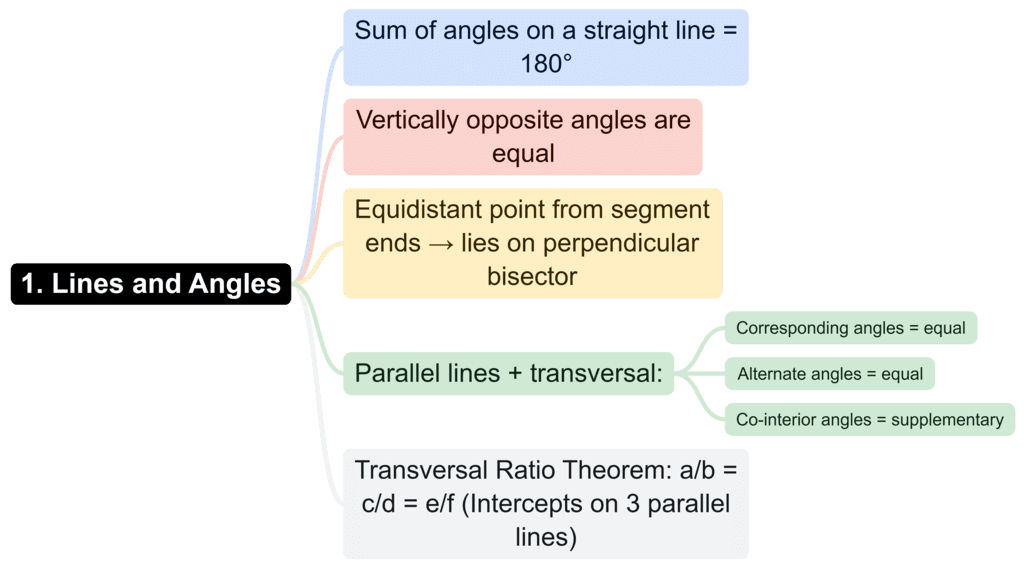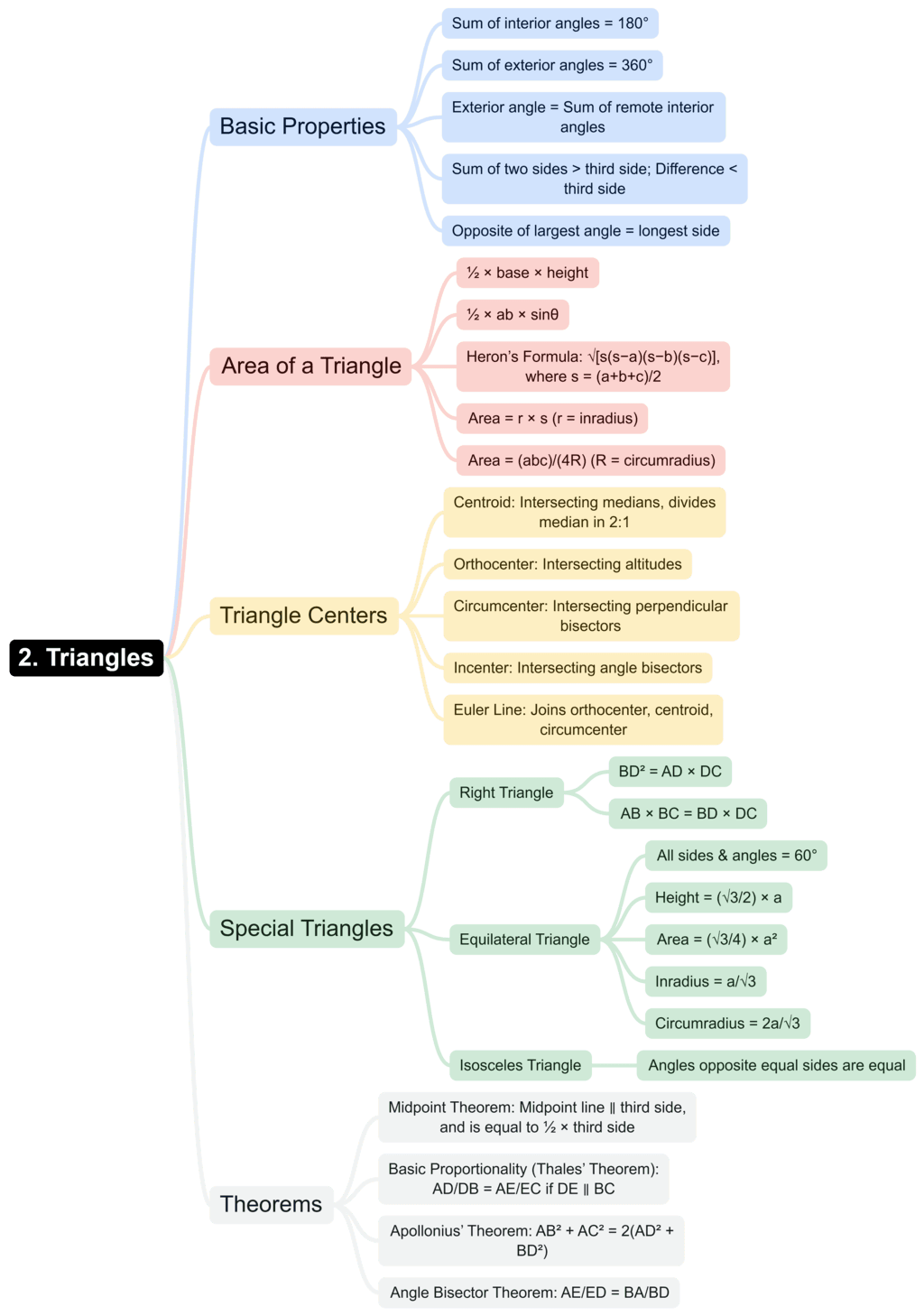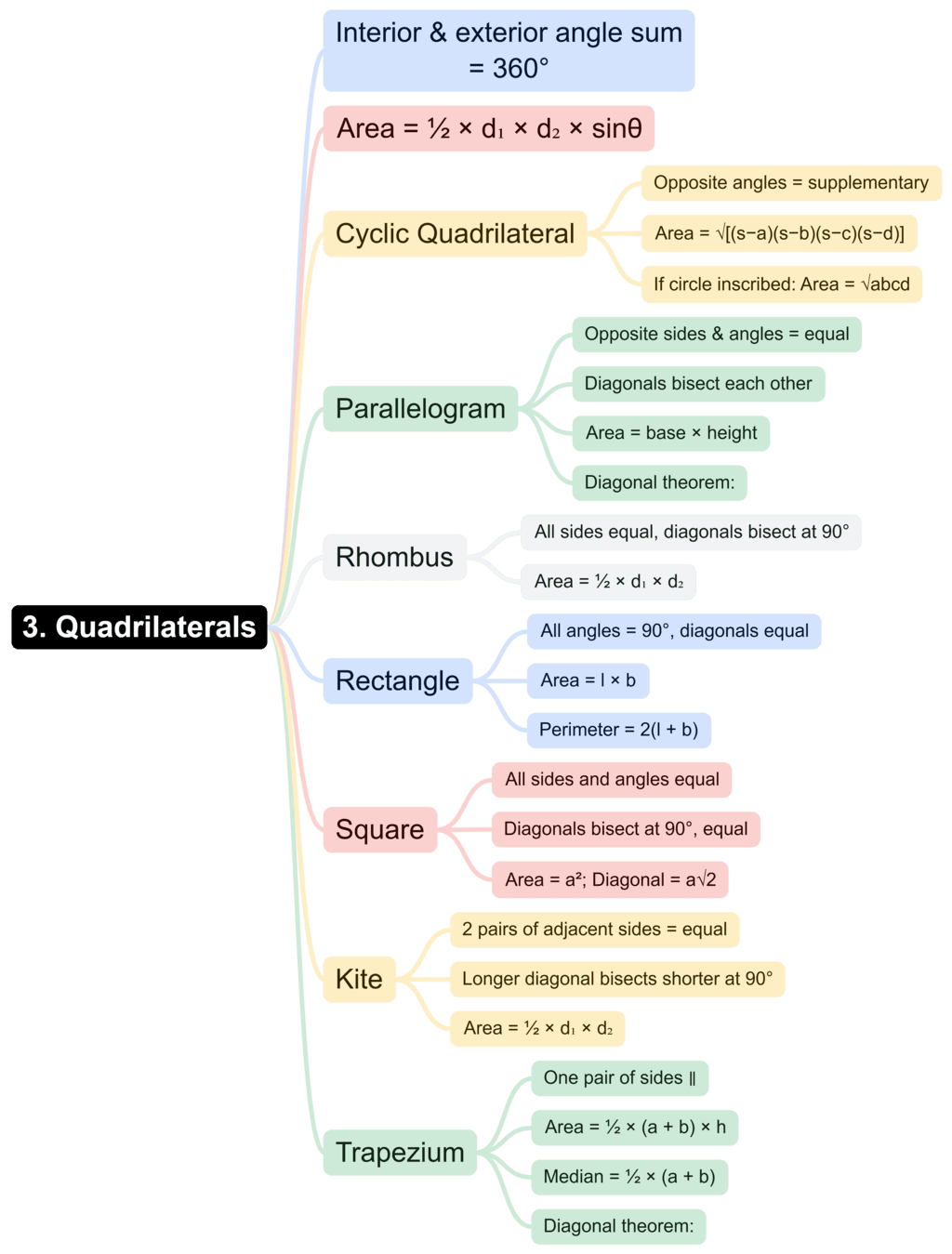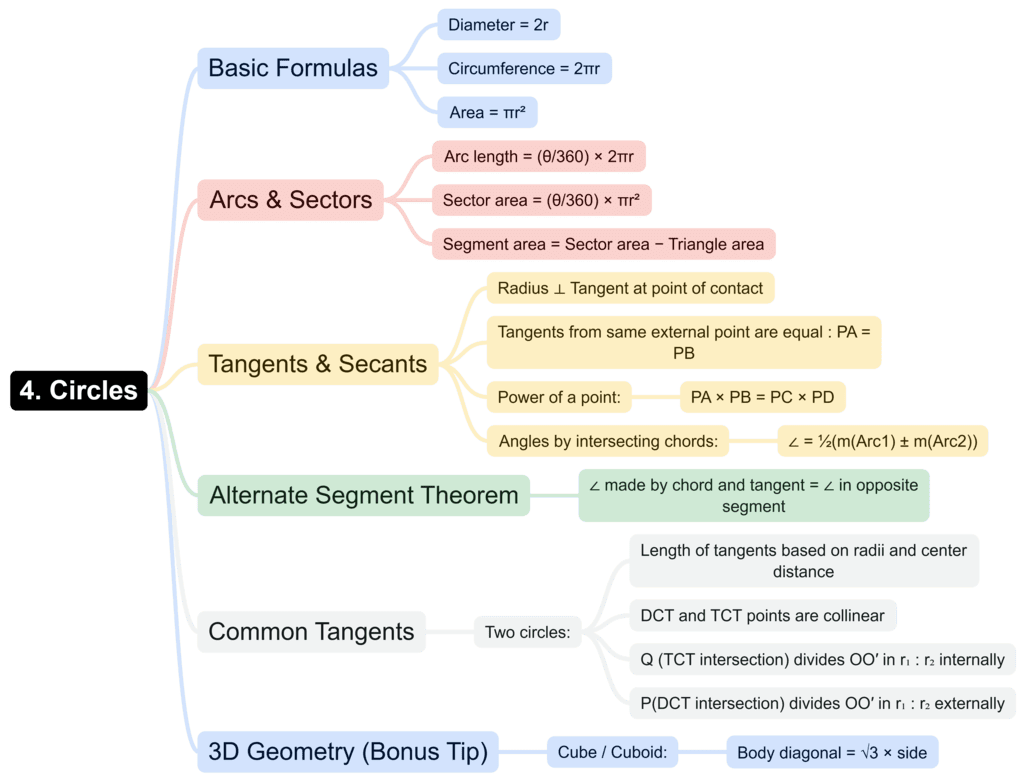UPSC Exam > UPSC Notes > CSAT Preparation > Mind Map: Geometry
Mind Map: Geometry | CSAT Preparation - UPSC PDF Download




The document Mind Map: Geometry | CSAT Preparation - UPSC is a part of the UPSC Course CSAT Preparation.
All you need of UPSC at this link: UPSC
|
208 videos|272 docs|138 tests
|
FAQs on Mind Map: Geometry - CSAT Preparation - UPSC
| 1. What are the basic types of geometric shapes? |  |
Ans. The basic types of geometric shapes include two-dimensional shapes such as squares, rectangles, circles, and triangles, as well as three-dimensional shapes like cubes, spheres, cylinders, and pyramids. Each shape has unique properties and formulas for calculating area, perimeter, and volume.
| 2. How do you find the area of a triangle? |  |
Ans. To find the area of a triangle, you can use the formula: Area = 1/2 × base × height. The base is the length of one side of the triangle, and the height is the perpendicular distance from that base to the opposite vertex.
| 3. What is the difference between congruent and similar shapes? |  |
Ans. Congruent shapes are identical in size and shape; they can be superimposed on each other. Similar shapes, on the other hand, have the same shape but may differ in size; their corresponding angles are equal, and their sides are in proportion.
| 4. What is the Pythagorean theorem and how is it used? |  |
Ans. The Pythagorean theorem states that in a right triangle, the square of the length of the hypotenuse (the side opposite the right angle) is equal to the sum of the squares of the lengths of the other two sides. It is used to find the length of one side of a right triangle when the lengths of the other two sides are known.
| 5. How can you determine if two lines are parallel? |  |
Ans. Two lines are parallel if they are in the same plane and do not intersect, regardless of how far they are extended. Additionally, if the slopes of the two lines are equal, they are parallel. This can be checked using the slope formula or by examining the angle relationships between the lines.
Related Searches





















